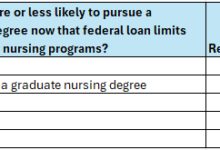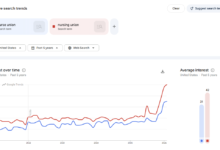‘Widespread disruption’ expected in Northern Ireland strikes

Health and social care (HSC) services in Northern Ireland will experience disruption “not experienced with previous industrial action” in next week’s public sector strikes, according to government warnings.
The Department of Health in Northern Ireland this week issued a statement about concerns it had for the upcoming action on 18 January and said it was doing everything possible to mitigate the risks.
“We have been left with no other choice but to take further action until someone listens to our concerns”
Rita Devlin
But unions have argued that their members have been raising concerns about the inability to deliver safe care “for years” and that patient care was being “compromised consistently” due to lack of safe staffing.
Nurses are among those joining the day of mass industrial action, which forms part of the ongoing fight for pay parity with their UK colleagues.
The day of action is being overseen by the Irish Congress of Trade Unions and at least 13 unions are due to take part, including the Royal College of Nursing (RCN), Unison and the Royal College of Midwives.
It comes as HSC staff are still without a pay deal for 2023-24, or an improved offer for 2022-23. This means that nurses in Northern Ireland are the lowest paid of their public sector counterparts in the UK.
Progress on a deal has been prevented for almost two years due to the collapse of power-sharing arrangements in Northern Ireland.
The Democratic Unionist Party (DUP) has been boycotting Stormont since February 2022 in defiance of post-Brexit policies affecting Northern Ireland.
Talks were held before Christmas between the UK Government and the Northern Ireland political parties to try and find a way forward, however, no agreement has been reached.
In the statement, the Department of Health in Northern Ireland explained that it was “extremely concerned” about the potential impact of the planned industrial action next week.
It said: “While every effort will be made to mitigate the impact on the public, there will be widespread disruption to all aspects of health and social care services.”
The statement warned that the strike action would negatively impact a wide range of areas, including planned and unplanned hospital services, community services and district nursing.
Details of the disruption to services are expected to be published on individual HSC trust websites in the coming days.
The statement said: “Trusts will work with trade union representatives to seek to protect emergency care.
“We nevertheless believe that disruption to services will be on a scale not experienced with previous industrial action.
“The strike action will be taking place at a time when services are already under sustained and very severe pressure.”
The department told the public to be “very conscious” of the reduced health service available on 18 January, which includes severe delays but also some services “not being available at all”.
It urged people to take “sensible steps” to reduce the chances of requiring health treatment on the strike day, while at the time still seeking emergency hospital care if necessary.
Separately, the department said it was aware of the “deep frustration” of HSC staff at the ongoing lack of a pay offer.
Due to the lack of a fully functioning government, the Northern Ireland secretary in Westminster, Chris Heaton-Harris, was responsible for setting the country’s 2023-24 budget.
As a result of his budgetary decisions, the Department of Health in Northern Ireland said it would be unable to make a pay offer to HSC staff.
It echoed this in its current statement and said it had “not yet been possible” to put forward an offer for nurses and their public sector colleagues.
“That situation is neither sustainable nor defensible and cannot hold indefinitely,” it added.
Responding to the statement, the director of RCN in Northern Ireland, Rita Devlin, told Nursing Times that the union’s members had been raising concerns about the inability to deliver safe care “for years”.
She said: “While 18 January is a significant day, our members are worried about the impact of a lack of safe staffing and the care they are able to give every other day of the year.
“We have been raising concerns with the Department of Health, employers and politicians for a significant period of time as patient care is being compromised consistently.”
Ms Devlin noted that low pay in Northern Ireland had been “making it very difficult to retain nursing staff” in HSC services, and that the RCN was “not willing to tolerate this any longer”.
“Put simply, we have been left with no other choice but to take further action until someone listens to our concerns and, more importantly, does something about it,” she added.






